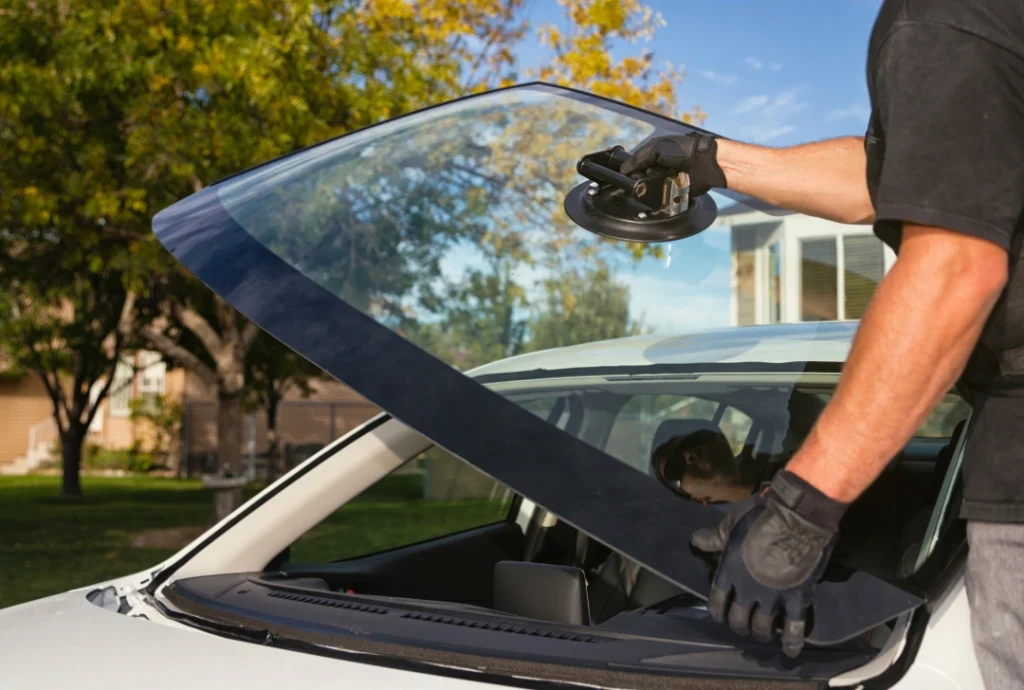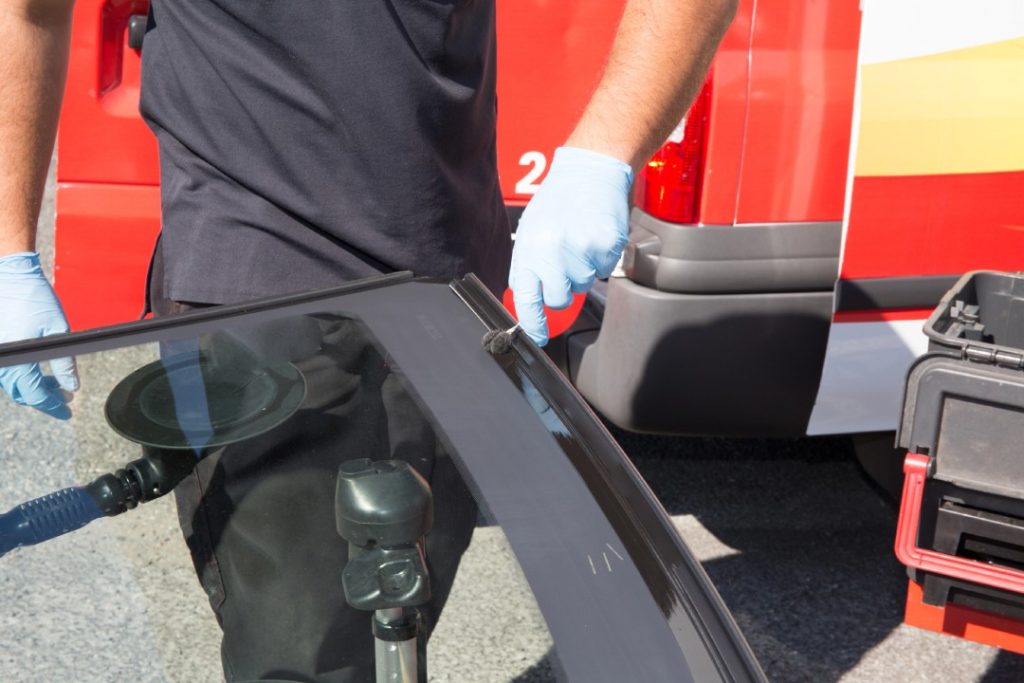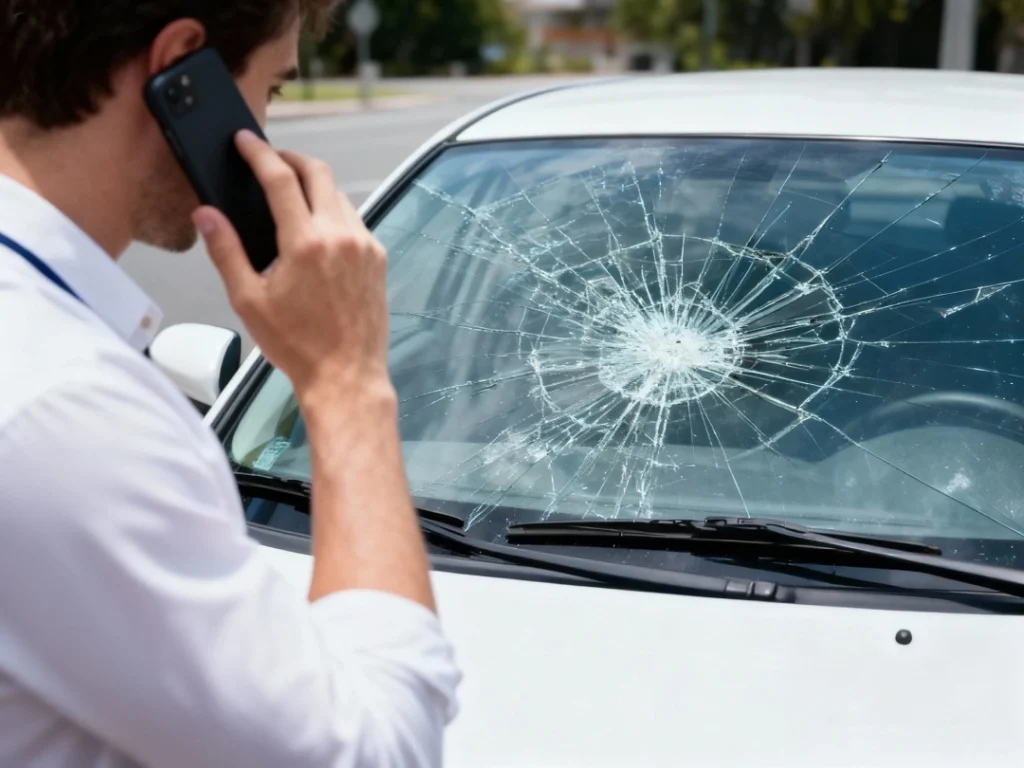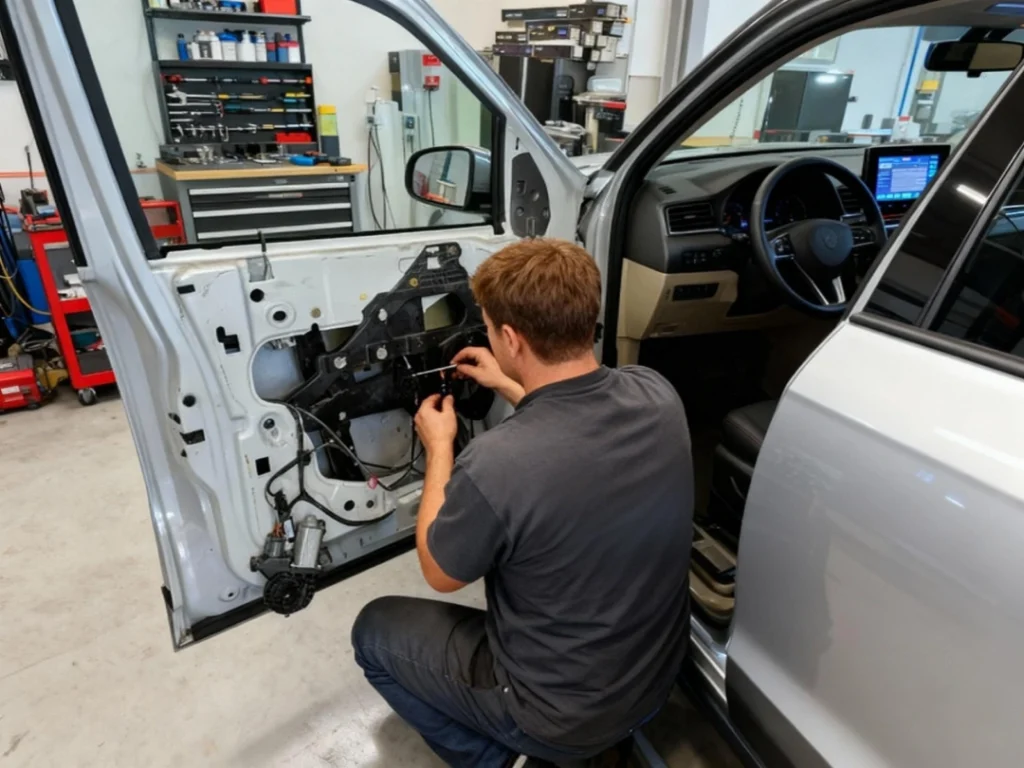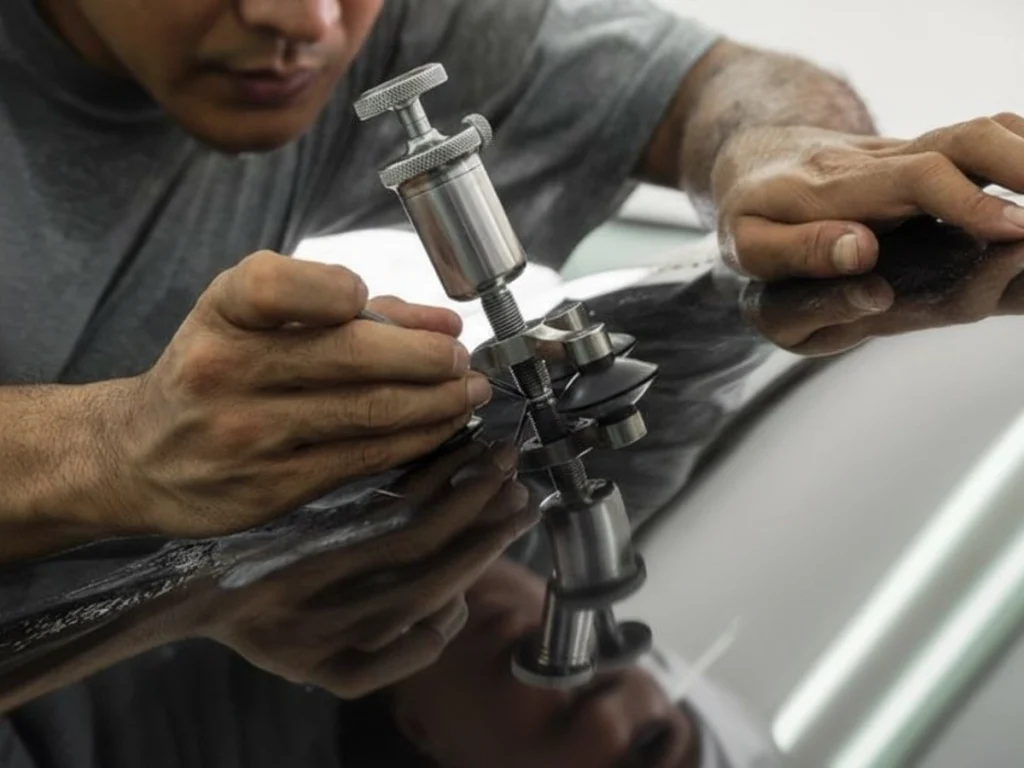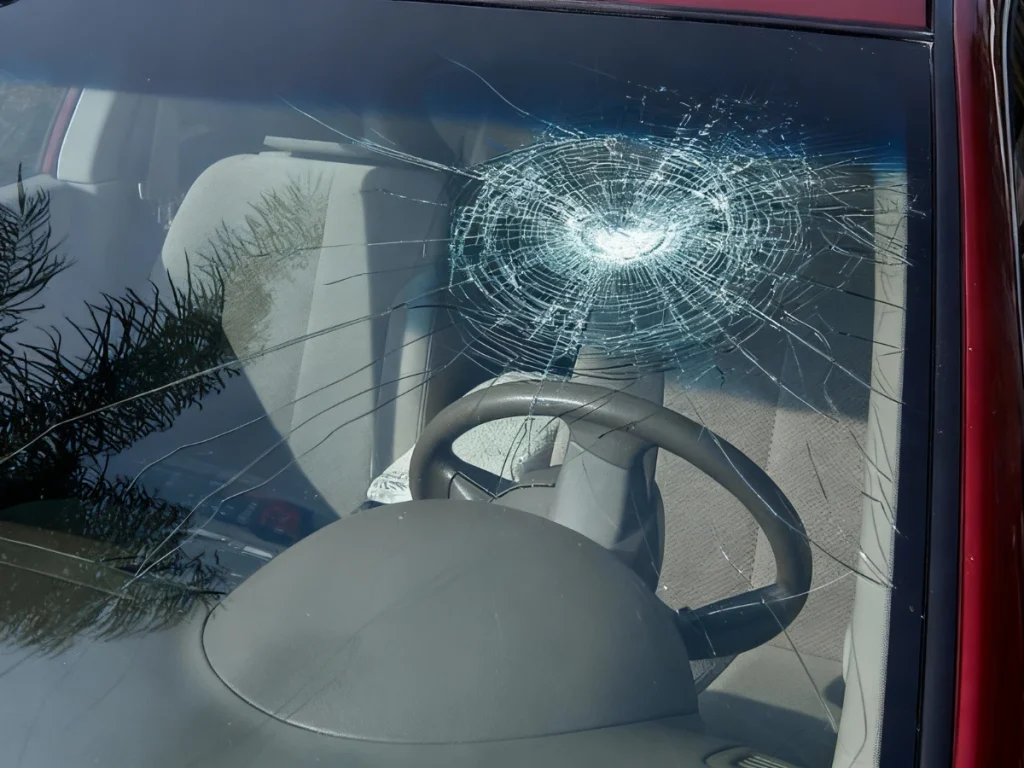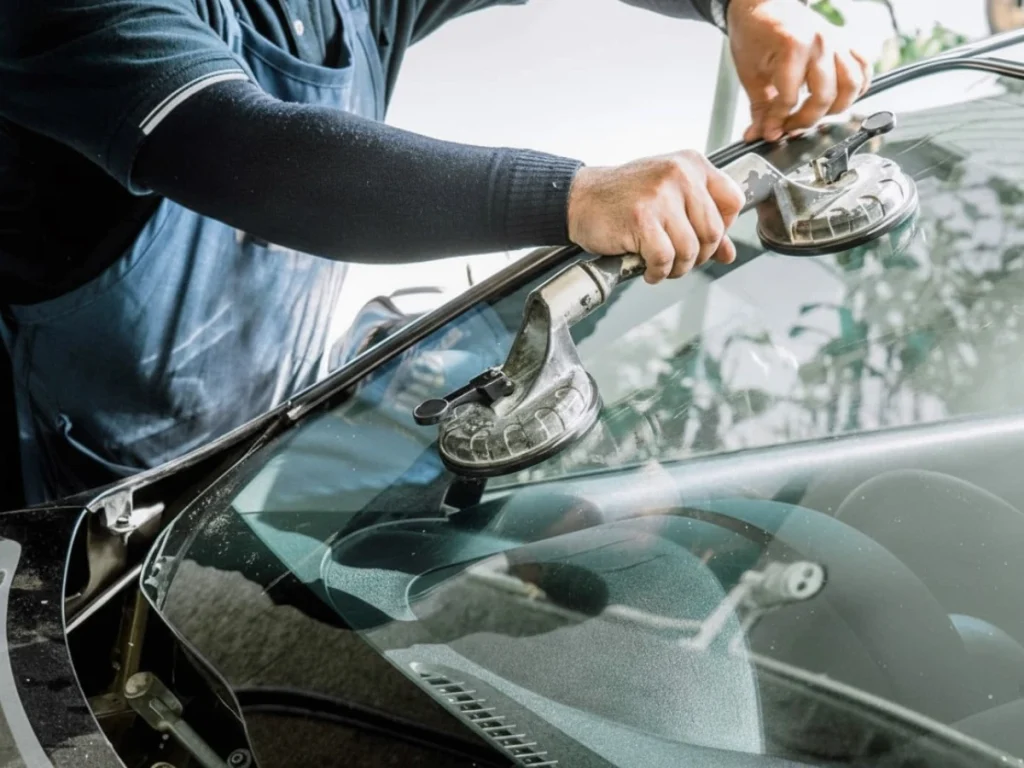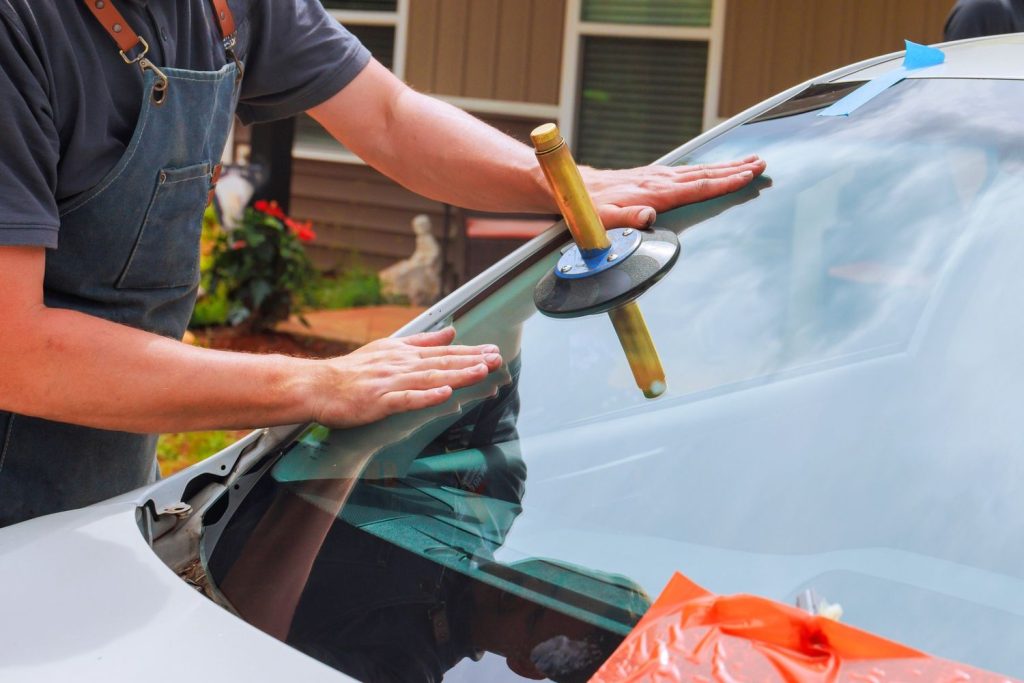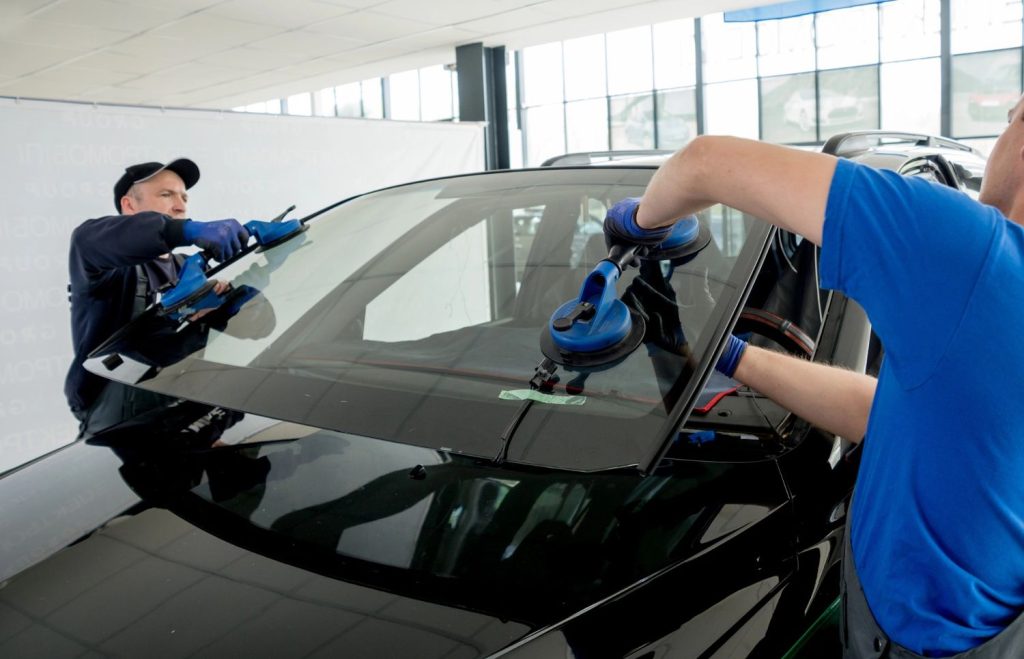How Thick Is Automotive Glass?
October 25, 2025
When it comes to car safety, most people think about airbags, seatbelts, and braking systems. But one component that quietly plays a huge role in protection and comfort is automotive glass. From your windshield to your side windows, every piece of glass in a car is designed with precise thickness and structure to balance strength, visibility, and safety.
So, how thick is automotive glass, and why does it matter? In this detailed guide, we’ll explore everything you need to know from typical glass thickness measurements to how different glass types affect performance and safety.
Understanding Automotive Glass: More Than Just a Window
Automotive glass isn’t just plain glass. It’s a specialized material engineered to handle impact, resist shattering, and provide clarity under extreme conditions. The glass used in vehicles is different from what’s found in homes or buildings because it must endure vibration, heat, wind pressure, and, in some cases, accidents.
Most vehicles use two main types of glass:
- Laminated Glass – used primarily for windshields.
- Tempered Glass – used for side and rear windows.
Each type has a specific thickness range, composition, and function, which we’ll break down below.
Typical Thickness of Automotive Glass
Let’s start with the numbers because that’s usually the first thing car owners want to know.
1. Windshield Thickness
Windshields are typically laminated glass, made of two layers of glass with a plastic interlayer (PVB – polyvinyl butyral) in between. This design prevents the glass from shattering into sharp pieces when damaged.
- Standard Thickness Range:
Windshields generally range from 4.76 mm to 6.76 mm thick. - Composition:
Each glass layer is about 2 mm, with a 0.76 mm interlayer sandwiched in the middle. - Variation:
Luxury vehicles or larger trucks may use thicker windshields (up to 7 mm) for added soundproofing and durability.
The balance here is crucial, too thick, and visibility or weight becomes an issue; too thin, and safety is compromised.
2. Side Window Glass Thickness
Side windows are usually made from tempered glass, which is heated and rapidly cooled to increase its strength. When broken, it crumbles into small, dull pieces instead of dangerous shards.
- Standard Thickness Range:
Between 3 mm and 5 mm on most vehicles. - Front Door Windows:
Slightly thicker around 4 mm to 5 mm for better impact resistance. - Rear Door and Quarter Windows:
Often thinner, ranging from 3 mm to 4 mm, since they experience less stress.
Manufacturers design side glass thickness based on the vehicle’s structure, soundproofing goals, and safety requirements.
3. Rear Window (Backlite) Thickness
The rear window, also made of tempered glass, serves as both a safety feature and a visibility aid. It must withstand rear-end vibrations and environmental stress.
- Standard Thickness Range:
Between 3.5 mm and 5 mm. - Defroster Layers:
Many backlites include integrated heating elements, which may slightly increase overall thickness. - Larger SUVs or Trucks:
May use thicker glass (up to 6 mm) for added strength and to support rear wiper systems.

How Automotive Glass Thickness Impacts Safety
Automotive glass isn’t designed at random the thickness directly affects your safety during collisions, rollovers, and even in daily driving conditions.
1. Impact Resistance
Thicker glass absorbs more impact force. For example, a 6 mm laminated windshield can withstand small rock strikes or road debris better than thinner versions. The internal plastic layer also prevents penetration from sharp objects.
2. Structural Integrity
In modern vehicles, glass contributes to the car’s overall structural rigidity. The windshield, in particular, helps support the roof in case of a rollover. If the glass were too thin, it could compromise the vehicle’s strength.
3. Noise and Temperature Control
Thicker or laminated glass offers better sound insulation, reducing road and wind noise. It also improves thermal efficiency, keeping your car cooler in the summer and warmer in the winter.
4. Shatter Behavior
Tempered glass thickness influences how it breaks. Thinner tempered glass shatters more easily, while thicker glass resists minor impacts longer but all are designed to break safely without sharp fragments.
How Manufacturers Decide on Glass Thickness
Glass thickness isn’t the same across all car brands or models. Manufacturers consider several factors before finalizing the glass specifications:
- Vehicle Type:
Sports cars may have thinner glass to reduce weight, while SUVs and trucks often use thicker glass for durability. - Safety Standards:
Every piece of automotive glass must comply with FMVSS (Federal Motor Vehicle Safety Standards) in the U.S., ensuring that it meets impact and optical clarity requirements. - Noise Reduction Goals:
Premium vehicles may use acoustic laminated glass, which can be 1–2 mm thicker than standard options to improve cabin quietness. - Climate Conditions:
Cars designed for extreme temperatures might use thicker glass for better insulation and UV resistance. - Technological Features:
Modern windshields often include rain sensors, HUD displays, and camera mounts, which influence the type and thickness of glass required.
How Glass Thickness Affects Replacement and Repair
When it comes to auto glass replacement or repair, thickness plays a big role in both compatibility and cost.
At Next Shield Auto Glass Repair, we emphasize using OEM-standard glass thickness that matches your car’s factory specifications. Installing glass that’s too thin or thick can cause issues like:
- Improper window alignment
- Poor sealing, leading to leaks or wind noise
- Compromised safety in collisions
1. Windshield Replacement
A professional technician will measure your vehicle’s VIN and glass curvature to match the correct thickness. Using mismatched glass can interfere with ADAS (Advanced Driver Assistance Systems), such as lane-keeping or automatic braking.
2. Side and Rear Window Replacement
Even though side and rear windows seem simpler, choosing the correct thickness ensures smooth operation of window regulators and proper door fitment.
Are Thicker Windows Always Better?
Not necessarily. While thicker glass improves durability and insulation, it also adds weight which can reduce fuel efficiency. For most vehicles, manufacturers find the ideal balance between:
- Safety
- Comfort
- Weight
- Cost efficiency
The key is using high-quality, properly fitted glass rather than simply opting for thicker panes.
Specialized Automotive Glass Options
Beyond standard laminated and tempered glass, newer technologies have introduced advanced multi-layer glass with additional performance benefits.
1. Acoustic Laminated Glass
This type uses extra sound-dampening layers to block outside noise, making cabins quieter. Its thickness can reach 7 mm or more in luxury vehicles.
2. Solar Control Glass
This glass includes infrared-reflective coatings that reduce heat buildup. Thickness usually remains standard (around 5 mm) but provides greater comfort and UV protection.
3. Bullet-Resistant or Security Glass
Used in armored or specialty vehicles, this glass can range from 20 mm to 50 mm thick. It combines multiple laminated layers to resist gunfire and impact far beyond standard automotive applications.

Measuring Automotive Glass Thickness
Professionals use digital micrometers or ultrasonic gauges to measure automotive glass accurately. These tools assess total thickness without removing the glass. If you’re replacing your glass, technicians at Next Shield Auto Glass Repair will ensure the new glass matches factory dimensions for a perfect fit.
Common Misconceptions About Automotive Glass Thickness
Let’s clear up a few misunderstandings that drivers often have:
- “Thicker glass never breaks.”
Even thick glass can crack under enough stress, it’s about impact distribution, not just thickness. - “All car windows have the same thickness.”
They vary across positions and vehicle types for functional reasons. - “Replacing glass with thicker options improves safety.”
Not always automotive glass works as part of a system designed for specific dimensions.
Maintenance Tips for Long-Lasting Automotive Glass
Even though glass thickness is fixed, proper care can extend its life and clarity:
- Clean regularly using non-abrasive cleaners.
- Avoid slamming doors when windows are closed, as pressure shocks can cause stress cracks.
- Repair chips immediately before they spread into full cracks.
- Check for seal wear to prevent moisture buildup that can affect laminated layers.
For professional inspection or replacement, Next Shield Auto Glass Repair provides expert evaluation using manufacturer-grade glass that matches your car’s original thickness and performance standards.
Your Trusted Auto Glass Replacement Experts in Violetville — Next Shield Auto Glass Repair Has You Covered!
When it comes to auto glass replacement in Violetville, you deserve a team that combines expert craftsmanship, fast service, and lasting reliability. That’s exactly what you get with Next Shield Auto Glass Repair, your local specialists committed to keeping your vehicle safe, clear, and ready for the road.
We understand how frustrating a cracked windshield or shattered window can be. That’s why we offer quick, professional, and affordable auto glass replacement services right here in Violetville, without compromising on quality or safety.
Here’s why drivers across the area trust Next Shield Auto Glass Repair:
✅ Precision-Fit Glass Replacement
We use OEM-standard glass that perfectly matches your car’s original specifications ensuring your new windshield or window fits seamlessly, maintains visibility, and restores the structural integrity of your vehicle.
✅ Fast, Reliable Service
Our experienced technicians value your time. Whether it’s a small chip that turned into a crack or a complete windshield replacement, we deliver same-day or next-day service so you can get back on the road safely.
✅ Certified Technicians, Proven Results
Each member of our team is highly trained and certified to handle all types of vehicles from compact cars to heavy-duty trucks. We take pride in our precision, ensuring every installation meets manufacturer safety standards.
✅ Competitive, Transparent Pricing
We believe in honest pricing with no surprises. You’ll know exactly what you’re paying for professional work at a fair rate that keeps your vehicle safe and your wallet happy.
✅ Mobile Service Available
Can’t make it to us? No problem. Our mobile auto glass replacement service brings professional-grade equipment straight to your home or workplace anywhere in Violetville, saving you time and hassle.
✅ Built on Trust and Local Care
As a locally operated business, Next Shield Auto Glass Repair takes pride in serving the Violetville community with personalized care, attention to detail, and dependable results that big chains just can’t match.
Get Your View — and Your Safety — Restored Today
Whether you’re dealing with a cracked windshield, a damaged back glass, or side window replacement, Next Shield Auto Glass Repair is the name drivers in Violetville rely on for top-quality auto glass replacement done right the first time.
📞 Call us today or schedule your appointment online to experience professional auto glass service that keeps your ride safe, clear, and looking its best.
Next Shield Auto Glass Repair Serving the Violetville Community and Beyond in Baltimore
Next Shield Auto Glass Repair is dedicated to serving the diverse needs of the local community of Baltimore, including individuals residing in neighborhoods like Violetville. With its convenient location near landmarks such as the Violetville Park and major intersections like Haverhill Rd and Hineline Rd (coordinates: 39.26784,-76.67923), we offer auto glass replacement Baltimore services.
Get Auto Glass Replacement at Violetville Now
Navigate from Violetville to Next Shield Auto Glass Repair Now
Final Thoughts
Understanding how thick automotive glass is gives you more insight into your car’s design and safety features. Whether it’s a laminated windshield built to withstand impact or tempered side glass made to shatter safely, every millimeter of thickness is engineered for a purpose.
When you need glass repair or replacement, trust a professional service like Next Shield Auto Glass Repair to ensure your car maintains its original integrity, visibility, and safety performance.
FAQs
1. How thick is the glass used in most cars?
Most cars use glass that ranges between 3 mm and 6.76 mm thick, depending on its location. Windshields are usually laminated glass measuring about 4.76 mm to 6.76 mm, while side and rear windows use tempered glass that’s typically 3 mm to 5 mm thick. Each section is designed to balance strength, visibility, and safety.
2. Does thicker automotive glass mean better protection?
Not always. While thicker glass can offer better impact resistance and noise reduction, it’s not the only factor that determines safety. Automotive glass works as part of your car’s structural safety system, so it’s best to stick to manufacturer-approved thickness. At Next Shield Auto Glass Repair, we use OEM-standard glass that matches your car’s original specifications for proper protection.
3. Why are windshields thicker than side windows?
Windshields are made of laminated glass, which has two layers of glass with a plastic interlayer for added strength and shatter resistance. This design makes them slightly thicker than side or rear windows, which are tempered and designed to crumble safely on impact. The extra thickness helps maintain structural integrity and supports driver visibility.
4. Can I replace my auto glass with a thicker or thinner one?
It’s not recommended to change the glass thickness. Your vehicle is designed for a specific glass type and measurement, which ensures proper sealing, fitment, and airbag function. Installing mismatched glass could cause leaks, wind noise, or reduced safety. The team at Next Shield Auto Glass Repair always installs the correct thickness glass for your make and model to maintain original performance.
5. How can I tell if my automotive glass needs replacement instead of repair?
If your windshield crack is longer than 6 inches, or if your side or rear window is shattered, replacement is the safest choice. Even small chips can spread over time, especially on thinner glass sections. Next Shield Auto Glass Repair can inspect the damage and determine whether a repair or full replacement is best for your car.

RESTORE YOUR
WINDSHIELD TODAY!
OR CALL US
(443) 296-0064
Restore Your
Windshield Today!
For dependable and expert auto glass repair services in Baltimore, look no further than the trusted professionals at Next Shield Auto Glass Repair. Reach out to us today to schedule an appointment or request a complimentary quote. Discover our unwavering commitment to unmatched quality, exceptional customer service, and our fervor for providing top-notch auto glass repair solutions. Rest assured, we are here to restore the safety, functionality, and aesthetics of your vehicle, ensuring your utmost satisfaction.


